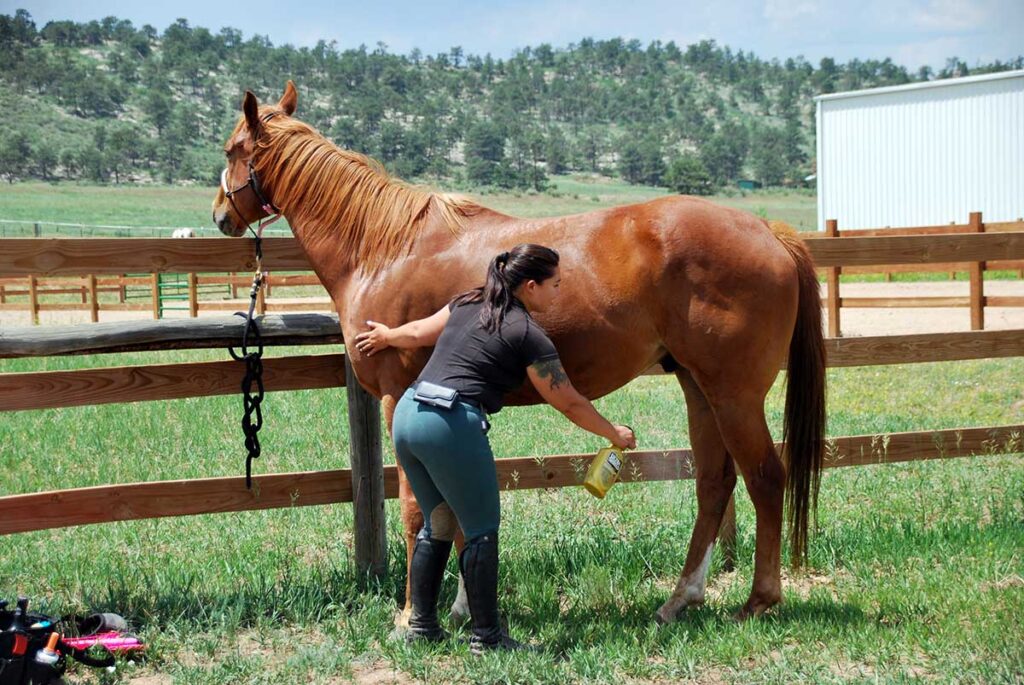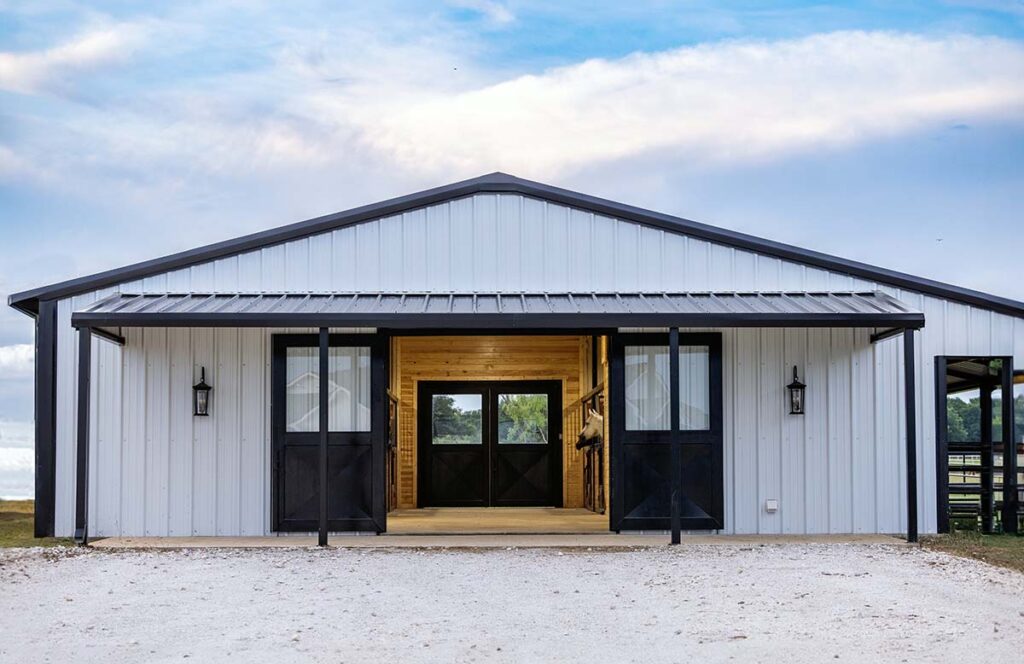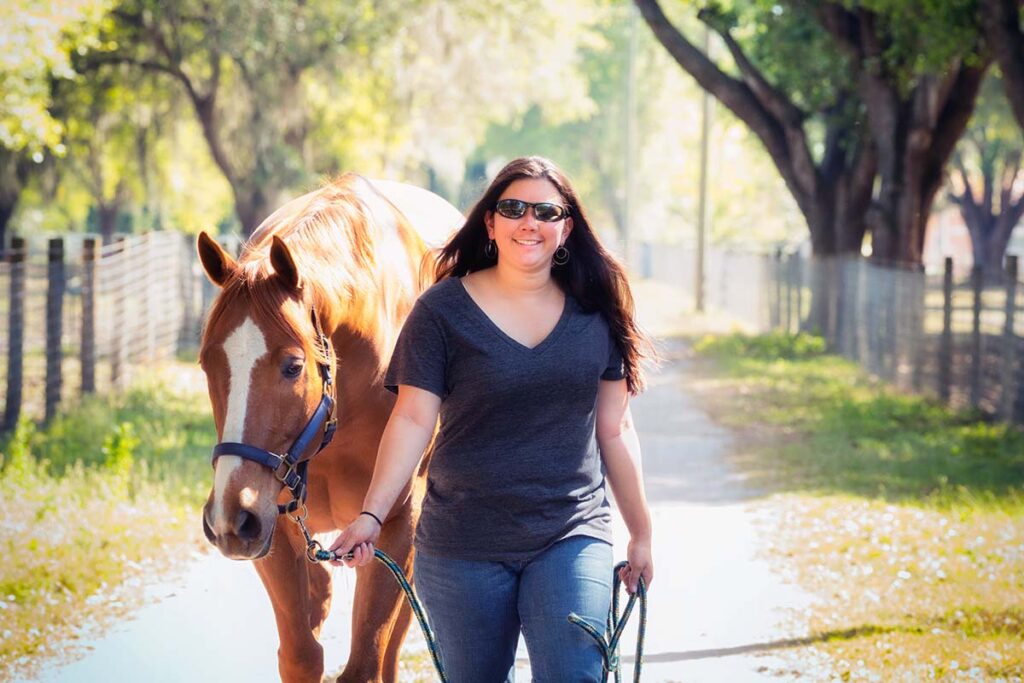Not all horses have active lifestyles. Some have retired from riding or breeding careers. Others have physical limitations or health conditions that preclude them from many activities. Just because they’re sedentary, however, doesn’t mean you can disregard their nutrient needs. Here’s how to feed retired and nonworking horses so they stay healthy and in good body condition.
Why Do Retired and Nonworking Horses Have Unique Needs?
When horses retire from active work, their energy requirements decrease significantly. Unlike performance horses, who need calories for energy, muscle repair, and endurance, retired horses mostly need maintenance nutrition. If you provide too many calories, your horse can become obese. Insufficient nutrients, on the other hand, can result in poor health.
Feeding retired horses properly involves first understanding their unique nutritional needs. This includes evaluating their age, weight, and activity level. Older horses might also have specific needs due to aging, such as joint issues or dental problems. Regular body condition scoring—at least monthly—can help you monitor your horse’s weight and adjust his diet accordingly.
The Henneke body condition score (BCS) system ranges from 1 to 9, with 1 being extremely thin and 9 being extremely overweight. A score between 4 and 6 is ideal for most retired and nonworking horses. Visually and manually assess the fat coverage around your horse’s ribs, shoulders, withers, loin, tailhead, and neck. Give each one a score and average the six to get your horse’s BCS.
Related Reading: How To Easily Determine Your Horse’s Body Condition Score
Crafting a Diet for Your Retired or Nonworking Horse

Forage remains the foundation of any horse’s diet—most should consume 1.5-2.5% of their body weight in forage daily. High-quality hay or pasture provides essential fiber that aids digestion and helps maintain gut health. Many nonworking horses spend most of their days turned out and grazing. If this is the case with your horse, then pasture alone might meet most of his forage requirements, particularly in spring and summer. With pastures that have been grazed down or don’t have sufficient grass (as is the case during winter), you’ll need to offer hay, as well.
When choosing a hay, keep in mind that grass hays like Timothy and orchard grass are generally lower in calories and protein. They’re often most suitable for horses with decreased energy requirements. Alfalfa hay, on the other hand, is richer in nutrients and might be beneficial for underweight or older horses needing extra calories, protein, and minerals such as calcium.
Because forage alone might not meet all your horse’s nutrient requirements, consider adding a ration balancer to his diet. These products are designed to provide essential protein, vitamins, and minerals to complement a high-forage diet without the extra calories you’d find in a concentrate feed. It’s a win-win: Your horse gets a balanced diet without packing on too many pounds.
Lastly, always provide plenty of fresh, clean water. Keep troughs and buckets clean and full, and check on waterers to ensure they’re functioning properly.
Special Considerations and Tips for Feeding Retired Horses
Many horses in this population have health conditions that diet can help support. Older and arthritic horses, for instance, might benefit from an oral joint health supplement containing science-backed ingredients such as glucosamine, chondroitin, and MSM.
Horses with dental issues will have difficulty grasping and chewing grass and hay. Consider adding a high-fiber concentrate feed to these horses’ diets, and look for extruded forms that are easy to chew.
Easy keepers and metabolic horses that spend their days on pasture can gain an unhealthy amount of weight. And horses with serious metabolic conditions might get too much starch and sugar from pasture. These horses might need to wear grazing muzzles to keep their grass intake at a safe level. Of course, less grass means fewer nutrients, so you might also need to offer a ration balancer and, in some cases, a concentrate feed. Which one you choose depends on your horse’s overall body condition.
Take-Home Message
Horses that aren’t getting ridden and handled on a regular basis are more likely to get overlooked when it comes to their diet, weight, and body condition. Just because your retired horse spends his days contentedly grazing in his field doesn’t mean all his nutrient needs are being met. Take the time to regularly assess his body condition, make diet adjustments as needed, and work with your veterinarian or equine nutritionist to come up with an individualized fplan for feeding retired horses.
Related Reading:
- Feeding Senior Horses: Everything You Need to Know
- Wise Weight Management: Feeding Metabolic Horses
- The Golden Years: Enriching Activities for Retired Horses
This article is brought to you by Sentinel Feeds.
Are you enjoying this content? Sign up for My New Horse’s FREE newsletter to get the latest horse owner info and fun facts delivered straight to your inbox!








